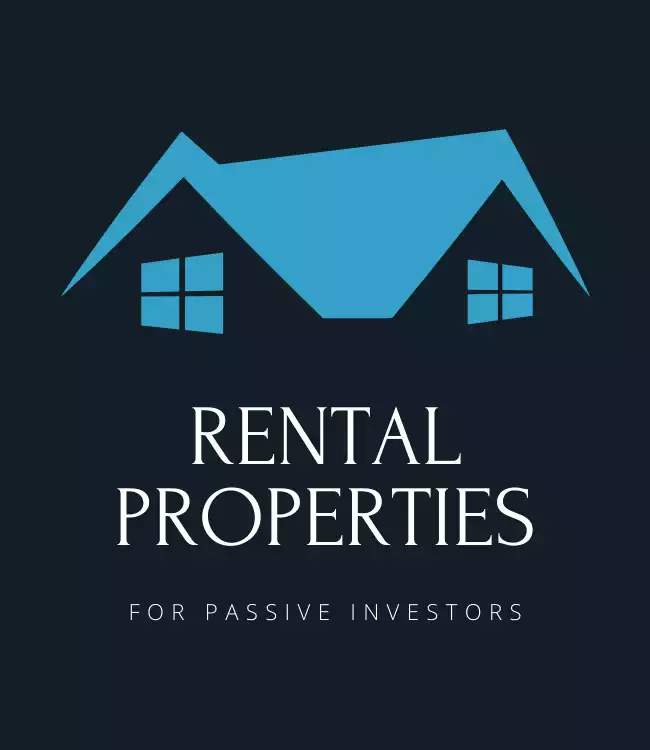- Use the MLS
- Find a Real Estate Agent
- Online Real Estate Databases
- Network
- Hit the Streets
- Owners Interested in Selling
- Classifieds in Local Newspapers
- Use a Property Management Company
- LoopNet for Commercial Real Estate
- Roofstock Turnkey Properties
You’ve decided to dip into the world of real estate by purchasing an investment property, but you’re stuck. How does someone find an investment property? While everyone has their own tips and tricks, we’ll show you the ten best ways to find an investment property.
How you go about looking will depend in part to what type of property you’re looking to buy. Do you want cash-flow right now, or are you more interested in an excellent long-term investment?
Do you want to use a real estate agent, or do you prefer doing most of the legwork yourself? Either way, we’ll show you the best tips and tricks to help you with your investment property search.
How to Find Investment Properties
The first place to look is the MLS. The MLS stands for Multiple Listing Service. It’s a database that helps brokers find clients that are looking to buy or sell real estate.
Every home on the market being sold by a real estate agent will be on the MLS, unless specifically exempt.
The idea behind it is for realtors to cooperate instead of compete. It’s a delicate balance they have to walk.
On the one hand, they want the commissions for themselves; on the other hand, they get more overall business by working together.
They offer a piece of their commission to whoever brings in the buyer (or seller). It’s kind of an I’ll scratch your back if you scratch mine” situation.
The downside to the MLS is only real estate agents, and their affiliates, have access.
To gain full access to the MLS, you’ll have to go through a real estate agent.
There are a bunch of benefits to using a real estate agent besides just gaining access to the MLS. A real estate agent can save you a lot of time with your search.
That isn’t a groundbreaking recommendation, but it’s a standard way people find homes for a reason. Your real estate agent has his finger on the pulse of the city.
Their whole job is networking and connecting buyers and sellers. They’re also incredibly valuable for their networking skills.
Developing good relationships with local real estate agents goes a long way even if you’re not using them directly. If something in your area is for sale, chances are, they know about it.
For instance, maybe they specialize in large apartment complexes, but they know you’re in the market for a multifamily home. Let’s say someone they know happens to be selling a triplex that would work perfectly for you.
It’s not in their wheelhouse, so usually they’d just ignore it, but since they have a friendship with you, they pass along the information.
If you don’t want the hassle of searching for the next great real estate property yourself, hire a real estate agent to do it for you. Even if you don’t want to hire a real estate agent, it can be helpful to network some with your local real estate agents.
If you develop a relationship with a great real estate agent, it can save you a lot of time, effort, and make both of you a lot of money.
How to Find Investment Properties without the MLS
The MLS is a fantastic resource if you can get access, but what if you can’t? Don’t worry; there are a lot of ways to find attractive real estate investment properties without it.
To find properties not listed on the MLS database, you’re going to have to get creative. It’s possible to find a great piece of residential or commercial real estate without ever going through the MLS.
Here are some of the ways we’ve found most likely to work.
If you don’t have access to the MLS database, you can still find a lot of great investment property options on sites like Zillow and Redfin.
These websites are a reliable resource for finding what’s available anywhere in the country. The listings aren’t as detailed as you’ll find on the MLS, but for a beginning real estate investor, it’s a great place to start.
Spending time on sites like these will give you a good idea of the expected purchase price of an investment property in the area you’re looking to invest.

Just like with the real estate agent example, networking is one of the essential tools in your repertoire. Looking online is a great start, but word of mouth is still one of the best resources we have.
Whether you’re looking for a job, a great restaurant, or the perfect investment property, word of mouth can’t be overlooked.
Real estate agents are a great source, but so are your neighbors. Everyone you know was, at some point, looking to buy, sell, or rent.
Chances are everyone you talk to knows someone who’s looking to buy or sell some real estate at any given time.
Hand out your phone number and shake a lot of hands. Someone in your general circle might not know of the next great deal but maybe they know someone who does.
One of the best ways to find deals in the neighborhood you’re looking to invest in is to physically get out there. This goes hand in hand with networking.
The more steps you take in a neighborhood the better chance you have of finding a great deal.
Being in a neighborhood can give you a much better sense of the real estate potential than simply seeing a listing on the computer.
Tweet ThisDrive around and look for homes that are for sale or look like the owner might be interested in selling. Take walks around different neighborhoods that you’re interested in.
If you’re trying to find a property that isn’t on the radar of local real estate agents look for one that isn’t for sale…yet.
Look for telltale signs that someone might not have the time or energy that comes with keeping up a property.
On residential properties, when lawns start to get overgrown and routine maintenance isn’t done, it can be a sign that the owner is looking to get out.
Maybe it isn’t their primary residence or maybe they’re just not able to care for it like they used to. Many people purchase second homes and find out, later on, they aren’t up to the task of living in two locations.
Also, people get older and want to downsize. Approaching these places can be a great way to find a diamond in the rough. Your success percentage won’t be very high, but you don’t need very many.
If you find a house that needs some cosmetic work make sure to get a home inspection done before purchasing.
Chances are if they’re neglecting the lawn they might also be neglecting important maintenance. We recommend always getting a home inspection done before purchasing an investment property.
A few hundred dollars for an inspection now can save you thousands later.
If you’re interested in commercial real estate look for restaurants or businesses where some cosmetic updating is needed.
An old paint job or dilapidated entrance are signs that the owners might be looking for the exits.
Many real estate investors have found success by approaching these types of property owners. These homes are often great candidates that don’t show up on any MLS websites.
Newspapers are a thing that still exists and the classified section still has a lot of residential homes for sale. While you won’t find as many investment opportunities as you would in the MLS database, local newspapers still have their place.
The nice thing about looking in the newspapers is a lot of investors overlook them, so the competition isn’t as crowded.
Some of the older generation, who might not feel technically savvy enough to get their property listed online, prefer to put an ad in the classified section.
It’s definitely worth a look for any would-be real estate investor.
You can also skip the legwork and go directly through a property management company. A lot of people find one after they’ve already made a purchase.
However, you can go to one before you’ve even found a potential property.
Real estate is their wheelhouse and they have information about properties sometimes before they’re even on the market. If you plan on hiring a property manager, they can be a great resource for getting the ball rolling.
Our proven, data-driven approach to building a portfolio of income-producing rental properties that perform in the long-term.
Online Investment Property Marketplaces
Andrew started investing in rental properties with the help of an online marketplace then documented the whole process.
He created the course, Rental Properties for Passive Investors mentioned above, based on his exact strategies.
This experience proved to produce a generous passive income stream for him and his family.
See the course here.
LoopNet is a marketplace for buying and selling commercial real estate. If you’re more interested in finding a restaurant or apartment building rather than a single-family or multifamily residential property then LoopNet could be the way to go.
You can browse listings on LoopNet for free but will have to pay in order to gain access to their entire inventory.
If you’re looking to make commercial property your specialty, it might be worth the upfront cost of gaining access to the full Loopfront database.
We’ve talked about Roofstock before. Roofstock is a one-stop-shop for investing in real estate. They do everything from finding you a property to placing renters. The best part is, you don’t have to leave your couch.
If you’re interested in finding real estate outside of your geographical area, or if you just don’t want to hassle with a more hands-on approach, Roofstock is a great option.
Other Considerations
It’s important to always do your due diligence before purchasing an investment property. Talk to your financial advisor about your long-term goals as well as your CPA, about the different tax deductions open to real estate investors, and always get a home inspection done before purchasing.
Getting into real estate can be a lucrative endeavor. It’s a great way to diversify from the regular stock market while still generating mostly passive income. The rate of return can vary substantially so it’s important to research before you buy.


